Announcing the 2024 Scholars and Mentors for the Towards 2044: Horowitz Early Career Scholar Program
SRCD is pleased to announce the 2024 cohort for the Towards 2044: Horowitz Early Career Scholar Program!
The Frances Degan Horowitz Millennium Scholars Program (MSP) was developed in 1999 as a vehicle to encourage and support scholars from under-represented ethnic/racial groups from North America in pursuing graduate work in developmental science. In 2020, the Wallace Foundation provided funding to SRCD to strengthen the program, extending it from mentorship specifically at the SRCD Biennial to a year-long program. The new name for the extended program is now the Towards 2044: Horowitz Early Career Scholar Program. This mentorship opportunity takes its name from the year when the adult population of the United States is estimated to become a diverse majority.
The Towards 2044: Horowitz Early Career Scholar Program will provide educational and professional development for scholars from underrepresented groups, giving them a launching point for a career in the field of child development with the guidance and mentorship from more advanced scholars. The selected scholars and mentors will meet in Washington, DC to kickstart the program, and then participate in a series of monthly virtual seminars and one-on-one mentor/mentee meetings through December 2024. These experiences will enable the rising scholars to gain valuable exposure to the field and allow them to network not only with their mentors, but also with other scholars and professionals.
The program is led by the Advisory Committee including Dr. Michael Cunningham (Tulane University) Dr. Mayra Bámaca (University of California, Merced) and Dr. Charissa Cheah (University of Maryland, Baltimore County) and is supported through generous funding from the Wallace Foundation.
Please join us in welcoming this year’s Towards 2044: Horowitz Early Career Scholar Program cohort of Scholars and mentors!
Scholars
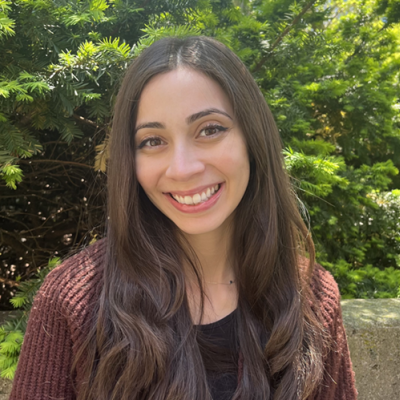
Krystal Alvarez-Hernandez
Krystal Alvarez-Hernandez is a second-year Ph.D. student in the Department of Communication Sciences and Disorders at Northwestern University. She obtained her bachelor’s degree in Psychological Science from California State University San Marcos in 2022 and was awarded the Predoctoral Ford Foundation Fellowship in 2023.
Raised as the eldest daughter of hard-working immigrants, Krystal grew up as a proud bilingual and bicultural Mexican American. At the age of 17, she became a mother, an experience that has profoundly influenced her interests and goals as a developmental scientist. She aims to examine the role of societal stressors (e.g., the COVID-19 pandemic) on maternal adaptive processes related to pregnancy, childbirth, and childrearing, and their children’s early cognitive trajectories, particularly within Latino communities. She hopes that this research will contribute towards alleviating early inequalities linked to the social determinants of health that Latino mothers and their children face in the United States.
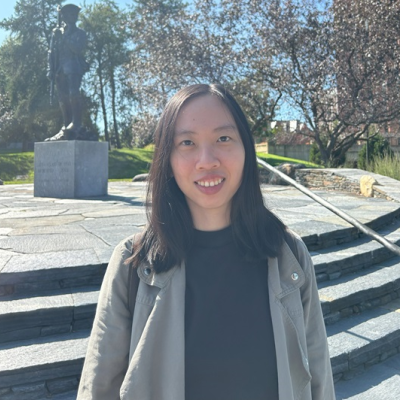
Truc Do
Truc Do is a first-year Developmental Science Ph.D. student at the University of Massachusetts Amherst. She has been a graduate research assistant in the Self-regulation, Emotions, and Early Development (SEED) Lab, working on a Technology Development Fund project that aims to detect early childhood psychopathology from a tablet-based game. Prior to starting her Ph.D. program, Truc received a Master of Science in Cognitive Neuroscience and Neuropsychology degree from Birkbeck, University of London where she was awarded a Kenway Legacy Scholarship. She later worked as a teaching assistant for children with autism in primary schools in London. She also earned a Master of Science in Psychology degree from the University of Essex (UK) where she was a recipient of the Woman of the Future Scholarship. Truc hopes to become a research scientist in the fields of developmental psychopathology and early childhood mental health. She is particularly interested in utilizing wearable technologies to shed light on emotion dysregulation issues such as temper tantrums in children with and without autism, especially from a cross-cultural perspective.
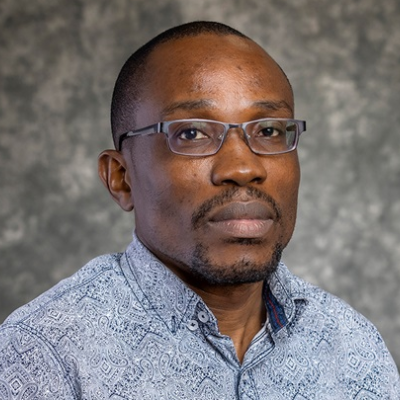
Peter Dossen
Peter C. Dossen is an international student at the University of Nebraska-Lincoln. He began his Ph.D. 2023 in the Human Sciences program specializing in Child Development/Early Childhood Education. Peter obtained his Bachelor of Science in Nursing from William V. S. Tubman University, Liberia, in 2016 and his Master of Arts in Child Development from the University of Haifa, Israel, in 2019. Peter's research interests revolve around the mechanism linking the association among the intergenerational transmission of adverse childhood experiences (ACEs), attachment, parenting, children's mental health, social-emotional development, and academic achievement in a post-war country. He has worked as an instructor at William V. S. Tubman University's Department of Early Childhood and Primary Education and also as a Registered Nurse at the Rocktown Kunokudi Clinic, where he held various roles, including officer in charge (OIC), Maternal and Child Health Focal person, and Child and Adolescent Mental Health Clinician. His transition from clinical nursing practice to child development stemmed from witnessing the lack of educational opportunities for children in the clinic catchment communities where he was assigned. This experience ignited his passion for policy reform initiatives that promote a safe, stable, and nurturing environment where young children and their families can thrive.

Joseph Green
Joseph (Joey) Green is a clinical psychology doctoral student at George Washington University. He earned his B.S. in Psychology from Arizona State University (ASU) in 2021. During his time at ASU, Joey worked on projects examining mental and behavioral health outcomes, their impact on biological processes (e.g., sleep), and interpersonal relationships that influence these outcomes (e.g., parenting) among LGB Latinx youth during periods of major transition (e.g., the transition to college). These experiences led to Joey’s current research interests in interpersonal relationships (e.g., parenting) and sociostructural contexts (e.g., policy/law, neighborhood/community) that influence LGBTQ+ youth health and development. His research interests draw on his work with the LGBTQ+ community during his time with the Trevor Project. In this role, he encountered many LGBTQ+ youth growing up in places and within contexts where support for their identity was lacking. He uses a development-in-context approach to examine these complex multisystem challenges and how they contribute to mental and behavioral health trajectories for LGBTQ+ youth.
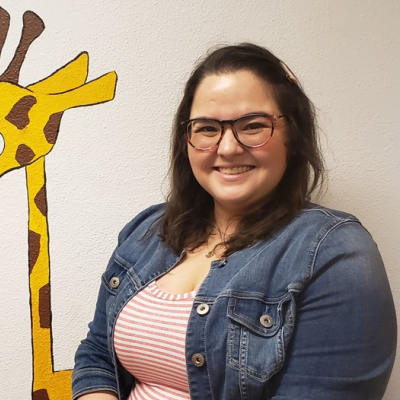
Christina Griep
Christina Diaz Griep is a graduate student at the University of Houston in the Psychology (Developmental Cognitive Behavioral Neuroscience) program. She earned her bachelor’s degree in psychology from Florida International University (FIU). During her time at FIU, she worked as a research assistant under the mentorship of Dr. Eliza Nelson, investigating the relationship between infant fine motor skills and vocabulary development. After graduation, she worked as a lab manager in the Adult Development and Decision Lab at the University of Central Florida under the mentorship of Dr. Nichole Lighthall where she worked on a project investigating the development of science learning. Currently she works with Dr. Hanako Yoshida in the Cognitive Development Lab investigating the early attentional mechanisms that underlie language development with infants from various cultural backgrounds and households that speak more than one language. Her current master thesis project aims to document early multimodal input structure by coupling head mounted eye trackers with network analysis. This will allow her to observe infants’ moment-to-moment gaze behaviors during parent-infant object play to investigate microstructures on parent verbal input during social contingent interactions. Beyond her research, she is a dedicated toddler mom, and enjoys traveling with her family.
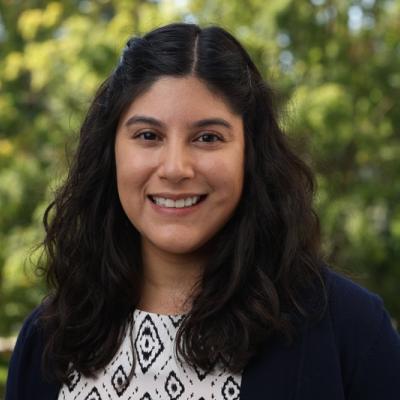
Erica Karp
Erica Karp, M.Ed., is a Ph.D. student in the clinical psychology program at Case Western Reserve University. Ms. Karp received her master’s degree in early childhood special education from Vanderbilt University and completed her undergraduate degree at Claremont McKenna College. Prior to pursuing her doctorate, she worked in various research laboratories at Northwestern University focused on neurodevelopmental disorders, cognition, and psychosis risk. Broadly Ms. Karp is interested in social-cognitive processes related to the development of psychosis and autism. More specifically, she is interested in the timing of social functioning difficulties and the subsequent impact on conversion risk in autistic individuals. Her current research projects are examining the utility of a social skills program for adolescents with serious mental illness and the feasibility of assessing psychosis risk in autistic individuals.
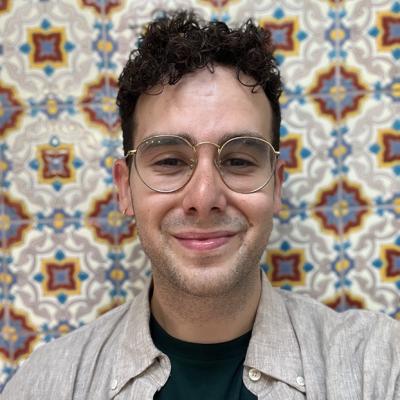
Javier Omar
Javier Omar is originally from Miami, Florida, and the son of two Cuban immigrants. He is currently a doctoral candidate in Developmental and Psychological Sciences at the Stanford Graduate School of Education. Prior to his time at Stanford, Javier taught secondary science in the San Antonio Independent School District. He received his B.S. in Neuroscience and Behavioral Biology and B.A. in Human Health from Emory University.
His research leverages mixed methods, strengths-based, and community-based participatory approaches to examine the social-emotional and psychosocial development of culturally and linguistically diverse children. His current work is situated within the Stanford-San Francisco Unified School District Partnership. It broadly focuses on assessing emotion knowledge development across a diverse cohort of preschoolers and examining the role of teacher beliefs and biases on social-emotional learning practices and student outcomes. Additionally, he is currently involved in a multi-institution, community-driven project focused on developing and validating a measure of youth immigration-related stress, trauma, and strength, where he is leading a qualitative study to explore how caregivers and youth perceive the impact of immigration-related experiences on youth psychosocial development and mental health.
Outside of research, Javier is passionate about mentorship and community-engaged work with first-generation, low-income and Latine communities.
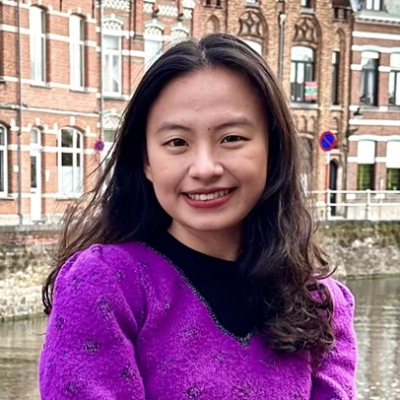
Crystal Thinzar
Crystal Ei Thinzar is an international and third-year clinical psychology Ph.D. student at UNC-Greensboro. Born and raised in Myanmar as a Chinese-Burmese individual, Crystal was exposed to different cultures and languages growing up. She naturally came to use different languages to express certain emotions and later realized that she communicates in ways that align with cultural values of the language that she was speaking in the moment, sparking her curiosity in how emotion and language may be interwoven. During her gap year working as a lab manager at UNC-Chapel Hill with Dr. Margaret Sheridan, she was first introduced to LENA ambulatory tool and became excited about studying everyday parent-child interactions. During her graduate studies with Dr. Megan Fields-Olivieri, she is focusing on characterizing dynamic parent-child emotion socialization and functional communication processes in daily life. Broadly, she is interested in the role of language in emotion regulation and identifying pathways to psychopathology with a focus on moment-to-moment parenting. An emerging research interest of hers is to explore everyday emotion-related language shifts as they relate to culturally salient parenting practices and child regulatory outcomes in bilingual immigrant families. Professionally, she is passionate about mentoring and raising mental health awareness in Asian community.

Sharnel Vale-Jones
Sharnel Vale-Jones, Yaagál, is Lingít (Alaska Native) from Yakutat, Alaska, belonging to Kwaashk’IKwáan (Raven, Humpy Salmon) Dis hítdaxáyáxat (Moon house). She is also the daughter of Teikweidí (Eagle, Brown Bear) and granddaughter of the Kaagwaantaan (Eagle, Beaver). Sharnel holds an M.S. in Clinical Psychology and is currently a PhD candidate at University of Alaska Anchorage’s Clinical-Community Psychology program. Prior to her graduate program, Sharnel dedicated nine years of her career to serving Alaska Native people in various capacities at the Alaska Native Tribal Health Consortium, including networking, improvement science, rural energy efficiency, and tobacco prevention. As a Lingít/European American individual, Sharnel is passionate about merging the two perspectives and weaving Indigenous knowledge into Western scholarship. She firmly believes engaging in culturally responsive research is crucial for decolonizing knowledge production. Sharnel's research interests lie in intergenerational trauma and resiliency strategies for Alaska Native (AN) and Indigenous people. Her dissertation aims to explore culturally relevant resilience strategies in Yaakwdáat Lingít (Yakutat Tlingit) child-rearing. In particular, this study seeks to understand family-level resilience through adaptive processes such as family connectedness, belief systems, organizational patterns, communication, and problem-solving, asking the question: How do Yaakwdáat Lingít people perceive child-rearing practices contributing to resilience?
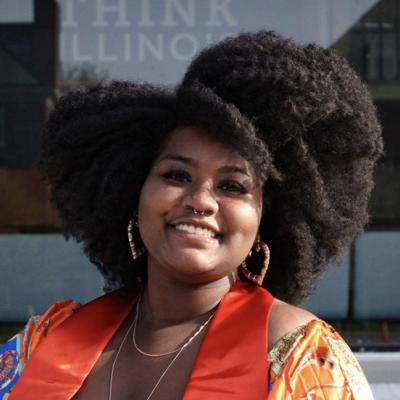
Jerny Walls
Jerny Walls is a doctoral student in the Educational Psychology department, specifically the Developmental Sciences division at the University of Illinois at Urbana-Champaign. Jerny received her Bachelor of Science degree in Learning and Education Studies with a concentration in Educational Equality and Cultural Understanding from UIUC in 2022. During their undergraduate studies, Jerny joined the Gracia Lab, led by Dr. Nidia Ruedas-Gracia, which focuses on researching sense of belonging. From her experiences in this lab, Jerny became interested in identity belonging. Jerny continues their work in the Gracia Lab as a doctoral student. She is currently interested in the impact of public schools on intersectional identity belonging development, particularly with the experiences of Black girls. Jerny utilizes art-based storytelling methodologies, such as portraiture and photovoice to help guide their research studies. The goal of her research is to collaborate with public schools in order to develop programming and curriculum that supports the intersectional identities of their students in order to improve their sense of belonging to their various identities. Outside of their academics, Jerny enjoys volunteering in her local community, going for nature walks with friends, collecting earrings, and teaching her pet bunny, Choppa, new tricks.
Mentors
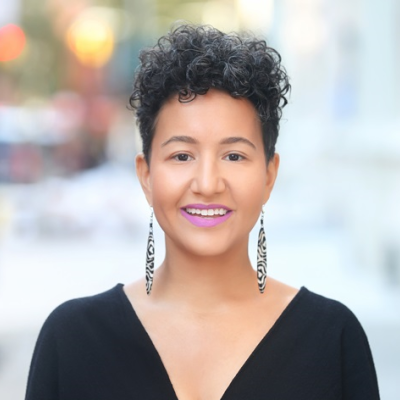
Riana Anderson
Dr. Riana Elyse Anderson is a Fellow at the Hutchins Center for African and African American Research at Harvard University and on leave as an Associate Professor at Columbia University’s School of Social Work. She earned her Ph.D. in Clinical and Community Psychology at the University of Virginia and completed a Clinical and Community Psychology Residency at Yale University's School of Medicine and a Fellowship in Applied Psychology at the University of Pennsylvania. On the whole, Dr. Anderson aims to facilitate healing in Black families with practical applications of her research and clinical services, as well as through public engagement, teaching, mentorship, and policy recommendations. Dr. Anderson uses mixed methods to study discrimination and racial socialization in Black families and apply her findings to help families reduce their racial stress. She is particularly interested in how family-based interventions help to improve Black youth’s psychosocial well-being and health-related behaviors. Dr. Anderson is the developer and director of the EMBRace (Engaging, Managing, and Bonding through Race) intervention and CEO and Founder of RACE Space Inc., and loves to translate her work for a variety of audiences, particularly those whom she serves in the community, via blogs, video, and literary articles. Additionally, for her early career accomplishments, Dr. Anderson has been the recipient of over twenty awards, including national awards from SRA, SRCD, APS, and FABBS. Finally, Dr. Anderson was born in, raised for, and returned to Detroit and is becoming increasingly addicted to cake pops.
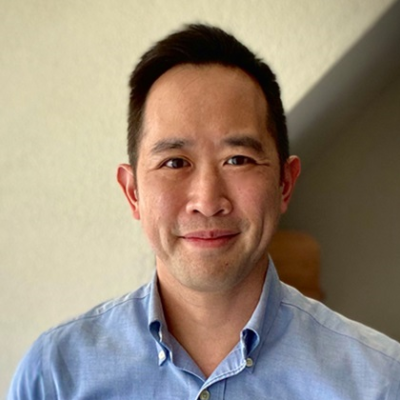
Stephen Chen
Dr. Stephen Chen is an Associate Professor of Psychology at Wellesley College. He completed his Ph.D. in Clinical Psychology from UC Berkeley and his clinical internship and postdoctoral fellowship at UCSF. As director of the Culture and Family Development Lab, Dr. Chen's research examines how culture and family processes influence mental health and development across the lifespan. His current research projects examine (1) how Asian American parents and adolescents navigate issues of race, social status, and success, and (2) the interplay between multilingualism and emotion in the family context. At Wellesley, Dr. Chen has taught courses in Asian American Psychology, Cultural Psychology, and Culture & Emotion. Within SRCD, Dr. Chen currently serves on the Asian Caucus Steering Committee, and has served on SRCD’s Teaching Committee and the Program Committee for the SRCD Anti-Racist Summit.
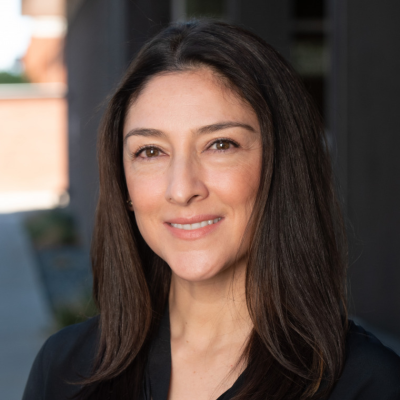
Melissa Delgado
Dr. Melissa Y. Delgado (she/her/ella), Ph.D. is a second-generation immigrant from the Arizona borderlands, where she now resides and is entering empty nesting with her husband and mother as her second of two wonderful sons is entering college. Dr. Delgado is an Associate Professor and Director of Graduate Studies in Human Development and Family Science at the University of Arizona’s Norton School of Human Ecology. She also co-chairs the Latinx Youth and Families Research Initiative at the UA Frances McClelland Institute for Children, Youth, and Families. Dr. Delgado earned her Ph.D. in Family Studies and Human Development from Arizona State University and was a W. T. Grant Foundation post-doctoral fellow. Her research addresses health and well-being disparities among Latinx youth, using cultural-ecological models to examine sociocultural stressors like ethnic discrimination and economic hardship. Her work highlights both protective and vulnerability factors within Latinx youth and their contexts, such as families and schools, to identify prevention and intervention opportunities. Employing mixed methods, she provides nuanced insights into the contextual processes affecting Latinx adolescents. Dr. Delgado is the Past Chair of the SRCD Latinx Caucus, a member of the SRCD Ethnic and Racial Issues Committee, and recently completed her term as Chair of the Society for Research on Adolescence Publications Committee. She is also an incoming SRCD Federal Executive Branch Fellow at the Eunice Kennedy Shriver National Institute of Child Health and Human Development.
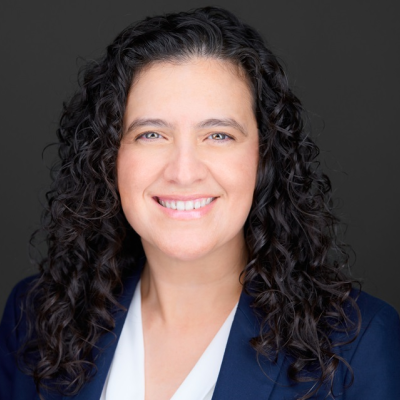
Perla Gámez
Dr. Perla B. Gámez is associate professor of psychology at Loyola University Chicago (LUC) and secretary for the Society for Research in Child Development (SRCD) Latinx Caucus. She received a PhD from the University of Chicago and was a post-doctoral fellow at the Harvard Graduate School of Education. Dr. Gámez leads a program of research focused on the language and literacy development of Latino children from homes in which English is not the only or primary language spoken (also referred to as bilinguals, dual language learners, English learners). Her current research examines how variations in the features of language that Latino children are exposed to at home and in school impact their language and literacy skills (Spanish, English). Her research has been funded by the William T. Grant Foundation and the National Science Foundation. She also received a National Academy of Education/Spencer Postdoctoral Fellowship and an Institute for Education Sciences Dissertation Year Fellowship. Currently, her work is funded by the National Institutes of Health (NIH). As a result, she has been honored by a Master Researcher Award at LUC. Dr. Gámez’s commitment to mentoring is evidenced by her NIH Academic Research Enhancement Award (R15) and participation as a mentor in the SRCD Horowitz Early Career Scholar Program. Her teaching and mentoring have earned her the Sujack Award for Teaching Excellence at LUC.
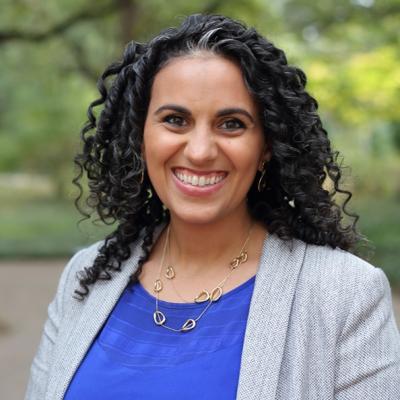
Nada Goodrum
Dr. Nada Goodrum is an Assistant Professor in the Department of Psychology at the University of South Carolina. She received her B.A. in psychology and international studies from the University of North Carolina at Chapel Hill, and her Ph.D. in clinical psychology from Georgia State University. She completed her predoctoral internship and postdoctoral fellowship at the Medical University of South Carolina. Her research investigates family- and community-level influences on youth well-being among families affected by major stressors. Her work currently centers on the impact of family stressors, such as trauma, HIV and other chronic illness, racism, financial strain, and parental substance use, on child health and parent-child relationships. She is interested in parents’ role in promoting child and adolescent health and preventing the intergenerational transmission of risk. The goal of her research is to promote health equity by using knowledge about risk and protective factors to guide the development of family-based, trauma-informed prevention and intervention efforts. Her research is primarily conducted among communities of color, and she strives to adopt a multicultural and social justice lens in her work. She is also a mother of two young children and enjoys coffee, baking, and houseplants.

Nneka Ibekwe-Okafor
Dr. Nneka Ibekwe-Okafor is an Assistant Professor of African and African Diaspora Studies, Early Childhood Education and Psychology at the University of Texas at Austin. Her research sits at the intersection of developmental science, early childhood education, and social policy. She investigates the social and environmental determinants of Black children’s early development by examining how poverty, racial discrimination, structural inequalities, and educational inequities influence access to quality early care and education and the developmental outcomes of Black children from birth to age eight. Her research has a particular focus on identifying protective factors across various ecological levels in efforts to promote the optimal developmental outcomes of Black children. Her goal is to inform social policies and practitioner-led interventions through the science of human development.
Nneka received a Ph.D. in Human Development and Quantitative Methods from the University of Pennsylvania, Graduate School of Education, an Ed.M. from Harvard University in Prevention Science Research, and a M.S.W. from Columbia University. In her undergraduate studies, Nneka majored in African American Studies and Sociology and was a NCAA Division I volleyball player at the University of California, Davis.
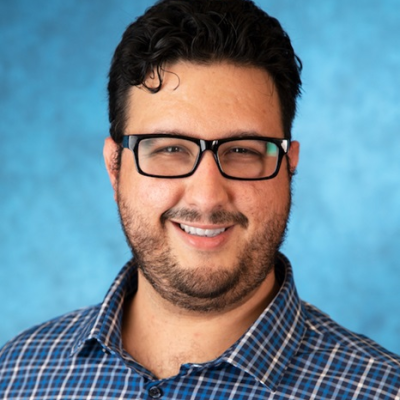
Alan Meca
Dr. Alan Meca (él/he/him) is an Assistant Professor in the Department of Psychology in the University of Texas at San Antonio (UTSA). He received his Ph.D. in Developmental Science from Florida International University in 2014 and completed a postdoctoral fellowship at the University of Miami. Broadly, his expertise is in identity development, acculturation, cultural stress, and positive youth development. Although his research has focused generally on identity development, most of his work has been on cultural identity development and acculturation among ethnic/racial minoritized youth, particularly among Hispanic/Latinx populations. Towards this end, his research agenda has focused on identity development and cultural stressors and their effects on health risk behaviors, mental health, and educational achievement. In pursuit of this research agenda, he has published over 80 peer-reviewed manuscripts focused on personal, ethnic/racial, and national identity and on the cultural dynamics among Hispanic/Latinx families. Currently, his research agenda is focused on refining measures of cultural identity, understanding the processes that govern how ethnic/racial minoritized youth navigate their cultural environment (e.g., code-switching, cultural frame switching), and identifying ways we can support youth experiencing cultural stressors such as discrimination, bicultural stress, and negative context of reception.
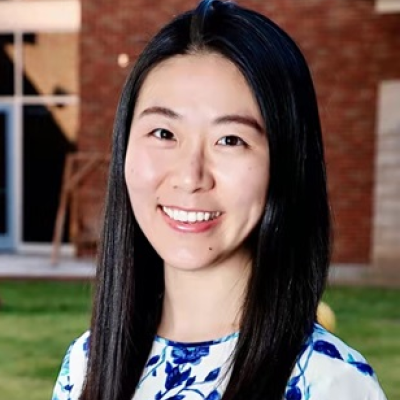
Jingjing Sun
Dr. Jingjing Sun is an Associate Professor of Educational Psychology at the University of Montana. Her research centers on supporting minoritized children’s cognitive, social, and emotional development with strengths-based approaches. Collaborating with community members and interdisciplinary colleagues in the U.S. and China, she investigates the impact of broader ecological systems, including culture, land, community, and tribal sovereignty, on children’s learning and social-emotional well-being. She also examines how to support teacher learning, well-being, and integration of discussion-based pedagogies through coaching and sustained professional development. Dr. Sun specializes in designing mixed-methods research to understand learning and development from different strands of data. Committed to supporting early-career scholars, she is excited to join the SRCD Towards 2044 program as a mentor again for the third year.
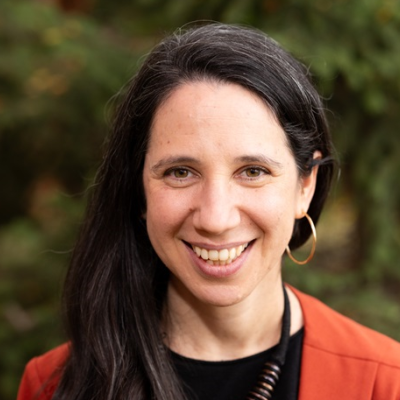
Adriana Weisleder
Dr. Adriana Weisleder is an Assistant Professor in the Department of Communication Sciences and Disorders at Northwestern University. She completed a Ph.D. in Psychology from Stanford University and a postdoctoral fellowship in pediatric primary care research at NYU School of Medicine. Her work investigates how children learn language across diverse sociocultural contexts, with a focus on Latine multilingual learners. In particular, her research aims to expand descriptions of early language development in children from immigrant and language minority homes by combining observational and experimental measures with community perspectives about what is normative language development. A key goal of this work is to contribute to building a more robust evidence base for understanding patterns of language development across diverse contexts, and to reduce inequities in access to culturally and linguistically responsive speech and language services. As a Costa Rican immigrant to the US, and a Spanish-English bilingual, she recognizes that immigrant communities are those most impacted by these issues and those who stand most to gain from this work. She uses community-based approaches to incorporate the views and priorities of minoritized communities, particularly Spanish-speaking Latine families. She is also strongly committed to mentoring the next generation of scholars.
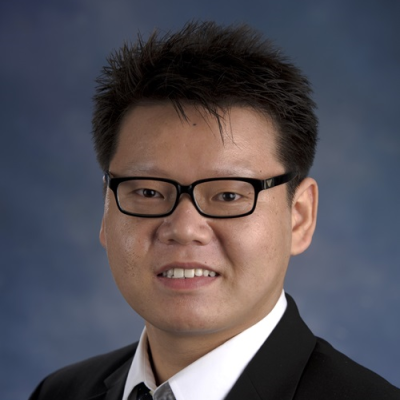
Chenyi Zhang
Dr. Chenyi Zhang is an associate professor of Early Childhood and Elementary Education at Georgia State University. His research explores contextual, cognitive, and emotional factors influencing children's early literacy development, as well as early childhood educators' professional growth. As an early interventionist, he designs and evaluates classroom-based literacy intervention programs that support young children's literacy development and creates professional learning programs to enhance educators' teaching practices.
He collaborates internationally with scholars from Asian countries, such as China and Japan, to study cross-cultural differences in early literacy development and literacy instruction. Currently, Zhang is researching how young children develop an interest in writing and exploring cultural differences in teachers' writing instruction between China and the U.S. He also leads a research team investigating the impact of the COVID-19 pandemic on young children's and parents' stress levels in the U.S. and China.
Zhang earned a Ph.D. in Human Development and Family Studies with a focus on developmental studies from Purdue University in 2013, and an M.S. in Human Development and Family Studies from the University of Missouri-Columbia in 2008.